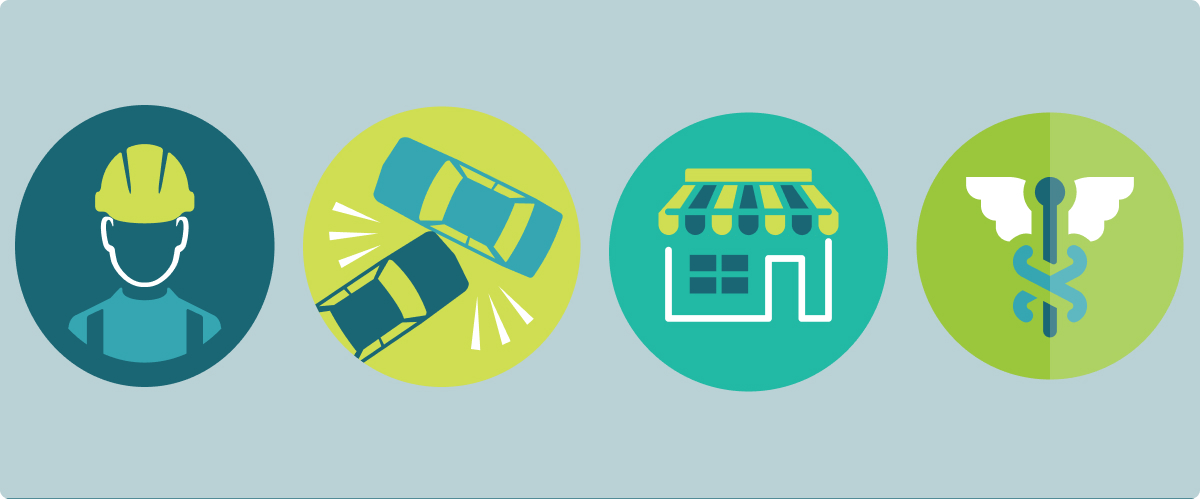Car accidents can be the cause of many immediate injuries such as cuts, bruises and broken bones, but in the midst of what can be a chaotic situation, there are certain injuries which can often be overlooked at first. Sometimes even very serious injuries take a few days to present, so if you have been in a motor vehicle accident, you should take care to look out for these seven common, but often delayed, injury symptoms in the days to follow.
-
Neck or shoulder pain and stiffness
One of the most common injuries caused by car accidents is whiplash. Whiplash usually occurs when a vehicle collides with another car’s rear end, jolting the first car’s passengers forward abruptly and causing neck and shoulder injuries.
While some whiplash pain may go away in a few days and can be treated at home, some whiplash injuries are more serious and can require the injured person to undergo x-rays, CT scans or MRIs before a diagnosis is reached. The pain and stiffness experienced by people suffering from whiplash often doesn’t show up straight away and long-term whiplash may need to be treated with massage and physical therapy.
-
Headaches
Another common sign of whiplash is headaches, however, they could also indicate a more serious injury including a neck injury or brain injury. If you begin to experience headaches after a car accident you should seek medical attention in case you are suffering a concussion or other condition which requires urgent care.
-
Personality and cognitive function changes
Further signs that a concussion may have been sustained include:
- memory loss or other impaired thinking;
- impaired vision and/or hearing that did not previously exist;
- mood swings and other personality changes; and
Motor vehicle accidents are one of the leading causes of traumatic brain injuries so if any of the above symptoms present after a car accident they should be taken seriously.
-
Back pain
It is not uncommon for delayed back pain to appear after a car accident. Typically, back pain will be caused by injury to the back muscles, ligaments or nerves but it could also be due to injured vertebrae.
-
Abdominal pain
Pain and/or swelling in the abdomen could be an indication that internal bleeding is present. Internal bleeding can also cause dizziness and fainting or appear as large, dark purple bruising. These symptoms may not appear for several hours, and it can be quite common for internal bleeding to remain undiscovered even days after the injury has occurred. Internal bleeding is a serious injury which can be life-threatening, so it is crucial that if any of the aforementioned symptoms are present, the individual is examined by a medical professional for a formal diagnosis.
-
Nerve pain and numbness
If you are experiencing nerve pain and/or numbness (such as a loss of feeling in your extremities) it may also be caused by a whiplash injury. Also referred to as ‘ whiplash-associated disorder’ this injury is due to the neck or spinal column and medical attention should be sought if these symptoms arise.
-
Mental health concerns
It is common for people to experience a decline in their mental health following a car accident. Most commonly, Post Traumatic Stress Disorder (PTSD) and anxiety can present, particularly in harrowing accidents where people were injured and/or a large amount of damage was caused to vehicles or property.
People who experience PTSD, anxiety or depression after a motor vehicle accident should seek medical attention to help diagnose the problem early on so that suitable treatment can be recommended to help with the symptoms, which include flashbacks, nightmares and sometimes even the inability to get back in a car or behind the wheel.


